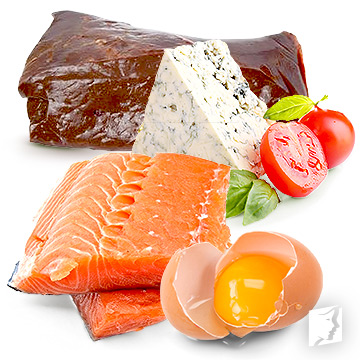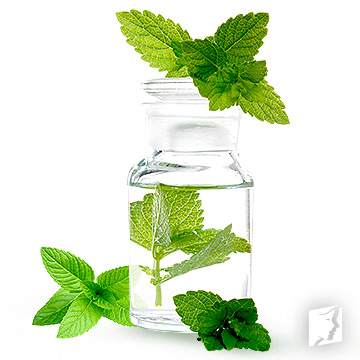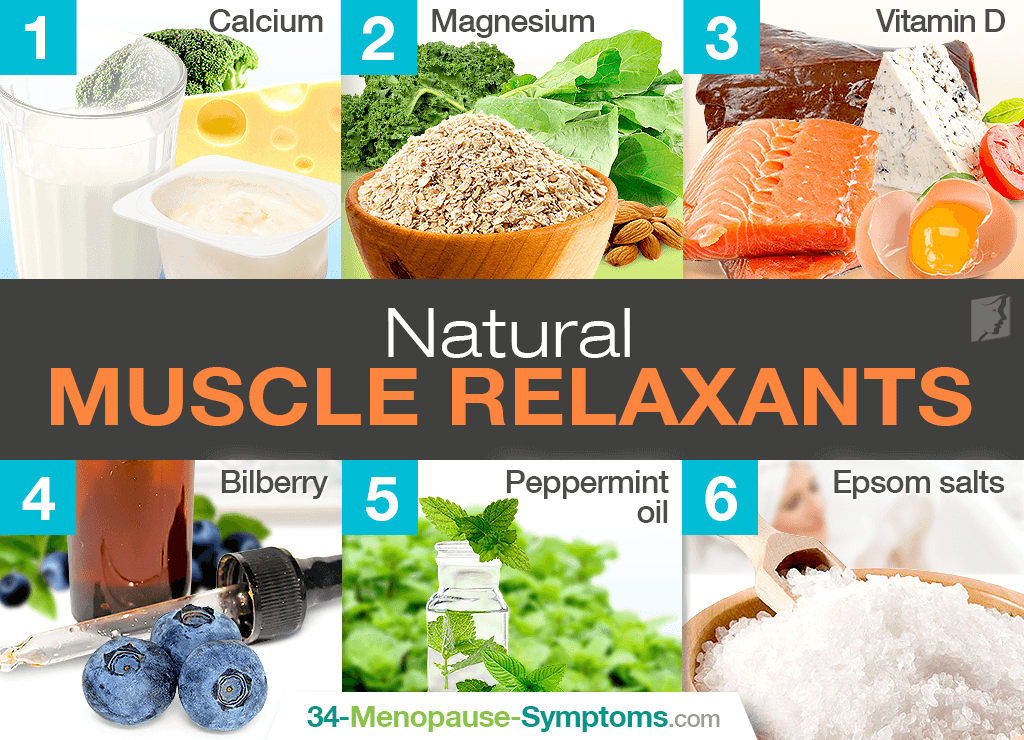When it comes to muscle tension due to menopause, you don't have to rush to your nearest pharmacy to find the quickest solution. Some of the best muscle relaxers you may already have in your cupboards.
Continue reading to learn more about natural muscle relaxants to stop bearing through the discomfort once and for all.
Natural Muscle Relaxants
Rest assured that these natural muscle relaxers are just as effective as over-the-counter solutions, granted you use them effectively:
Calcium
Besides being a key contributor to bone and heart health, calcium is necessary for the contraction and relaxation of skeletal muscles and blood vessels. Also, taking calcium - either as a supplement or through food - during the day will help you fall and stay asleep throughout the night as well. Foods rich in calcium include dairy products (milk, yogurt, and cheese), sardines, salmon, oats, almonds, broccoli, oranges, and more.
Magnesium
In order for your body to absorb calcium, you need magnesium, making this combination of the utmost importance. In addition to this, magnesium also relaxes muscles to relieve any pent-up tension and restore vascular tone. This mineral is an integral part in treating tension headaches, leg cramps, and other neck issues. Find magnesium in foods such as almonds, kale, spinach, oats, green beans, and more.
Vitamin D

Vitamin D is also necessary for calcium absorption, similar to magnesium, making it essential for the maintenance of strong, healthy bones. However, in and of itself, vitamin D also serves as a natural muscle relaxant. Studies show that nearly half of all adults suffer from musculoskeletal pain, most of whom are deficient in the essential vitamin. Get your daily intake through beef liver, cheese, egg yolks, fatty fish, and fortified food options, like dairy products, cereals, and orange juice.
Bilberry
Bilberry contains muscle-relaxing flavonoids called anthocyanins. It also helps improve circulation to decrease any possible muscle cramping occurring in your body. Extracts have been used successfully to treat women suffering from dysmenorrhea, painful periods, which can be symptomatic a few days before menstruation.
Peppermint Oil

Peppermint oil is a natural painkiller and muscle relaxer that is commonly used to combat tension headaches and sooth sore muscles or joint pain. It is also used to clear sinus passages and provide relief from a scratchy throat. The best way to reap its benefits is to take it as a two to three percent dilution (one or two drops with an edible carrier oil in a gel capsule) or use during a massage.
Epsom salts
This remedy is not real salt. Epsom salts are composed of magnesium sulfate, which - as aforementioned - is a natural muscle-relaxing mineral. Therefore, when made into salt, this compound is absorbed through the skin to thus reduce any swelling and relieve muscle cramps. Studies have shown that soaking in an Epsom salts bath for about 10 minutes daily for a week can elevate magnesium levels considerably.
On a final note, the best way to manage menopausal muscle pain is to treat the symptom from the source. As such, many muscle tension treatments are available to help resolve hormonal imbalances, which is the underlying cause of your misery. With appropriate management, you can start living a pain-free life again.
Sources
- Chaitow, L. & DeLany, J. (2011). Clinical Application of Neuromuscular Techniques, Volume 2. London: Churchill Livingstone. Available from Google Books.
- Hamilton, B. (2010). Vitamin D and Human Skeletal Muscle. Scandinavian Journal of Medicine & Science in Sports, 20(2), 182-190. doi: 10.1111/j.1600-0838.2009.01016.x
- LaBar, D. (2017). Simple. Natural. Healing. New York: Morgan James Publishing. Available from Google Books.
- Maleskey, G. (Ed.). (2011). Nature's Medicines. USA: Rodale, Inc. Available from Google Books.
- Mercola, J. (2017). Fat for Fuel. USA: Hay House. Available from Google Books.
- Pizzorno, J.E. & Murray, M.T. (2013). Textbook of Natural Medicine, Fourth Edition. Missouri: Churchill Livingstone. Available from Google Books.
- Tague, S.E. et al. (2011). Vitamin D Deficiency Promotes Skeletal Muscle Hypersensitivity and Sensory Hyperinnervation. Journal of Neuroscience, 31(39), 13728-13738. doi: 10.1523/JNEUROSCI.3637-11.2011
- Zielinski, E. (2018). The Healing Power of Essential Oils. New York: Harmony Books. Available from Google Books.


